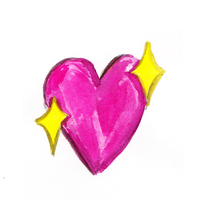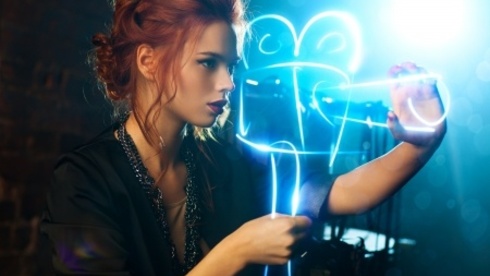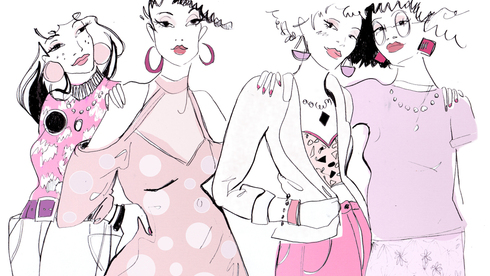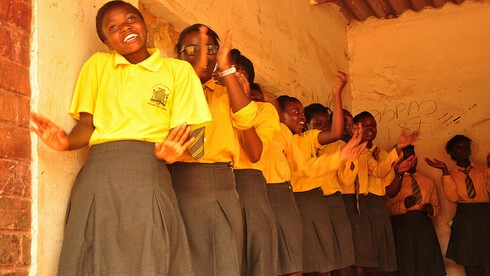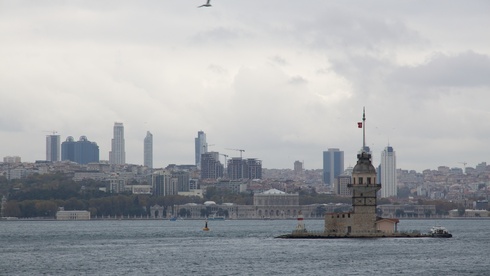Awesome Women Minna Salami
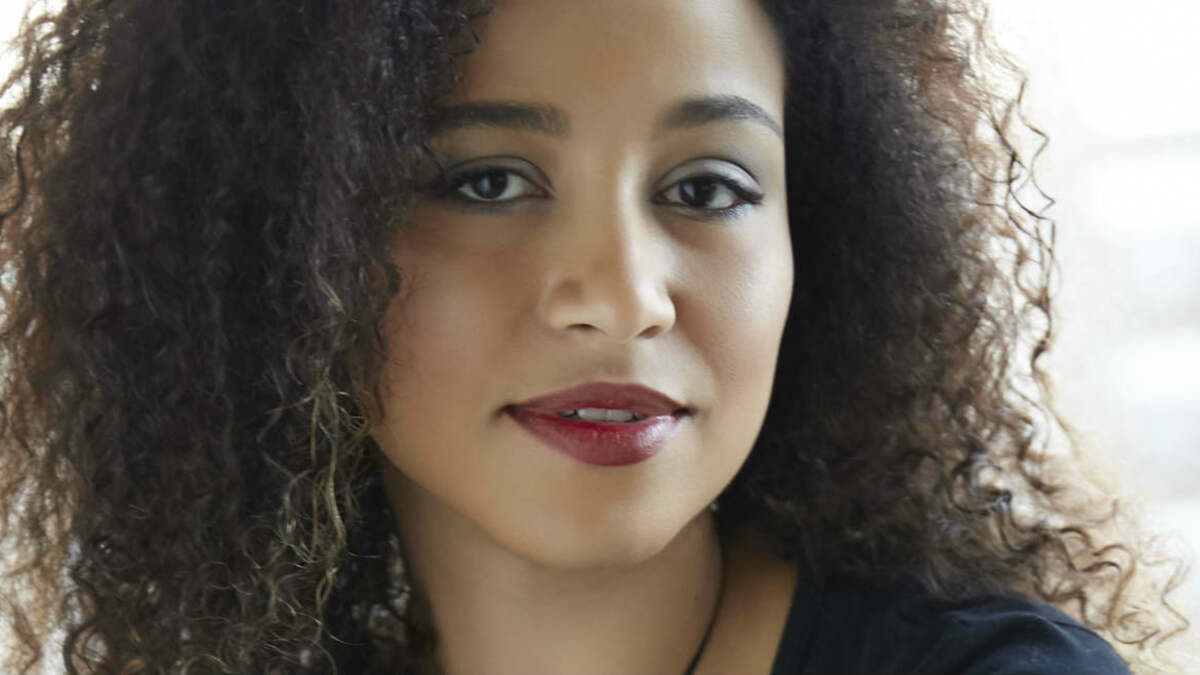
Minna Salami is a Nigerian-Finnish writer and commentator; and is (quite rightly) being touted as one of the most important, and exciting, feminist thinkers we have.
Minna began airing her views on her blog MsAfropolitan in 2010; in the intervening years her blog has won numerous awards, and its popularity continues to increase (it seems) exponentially, “My mother used to say I was even a blogger as a child already …. The blog was such a natural project, I didn’t put much thought into it, then with time the blog started to be taken more seriously and I realised I should make it a more structured and strategic project that I’m working on; and that’s how I created MsAfropolitan.”
“My mother used to say I was even a blogger as a child already …. The blog was such a natural project, I didn’t put much thought into it, then with time the blog started to be taken more seriously and I realised I should make it a more structured and strategic project that I’m working on; and that’s how I created MsAfropolitan.”
Minna’s list of accolades is as long as a piece of string: She is a member of Duke University’s Global Educator Network, the Guardian Africa Network and the Guardian Books Network. Her writing features in the UK Guardian, Al Jazeera and the Huffington Post - as well as in her bi-monthly column for The Guardian Nigeria. She has been listed as she was listed as Elle Magazine’s ‘12 Women Changing The World’; ‘40 African Change-makers under 40’ by Applause Africa; one of ‘50 Remarkable Women Connected’ by NOKIA; she has given Ted Talks; she has an MA in gender studies and a BA in political science; she can speak five languages.
WHO IS MINNA SALAMI?
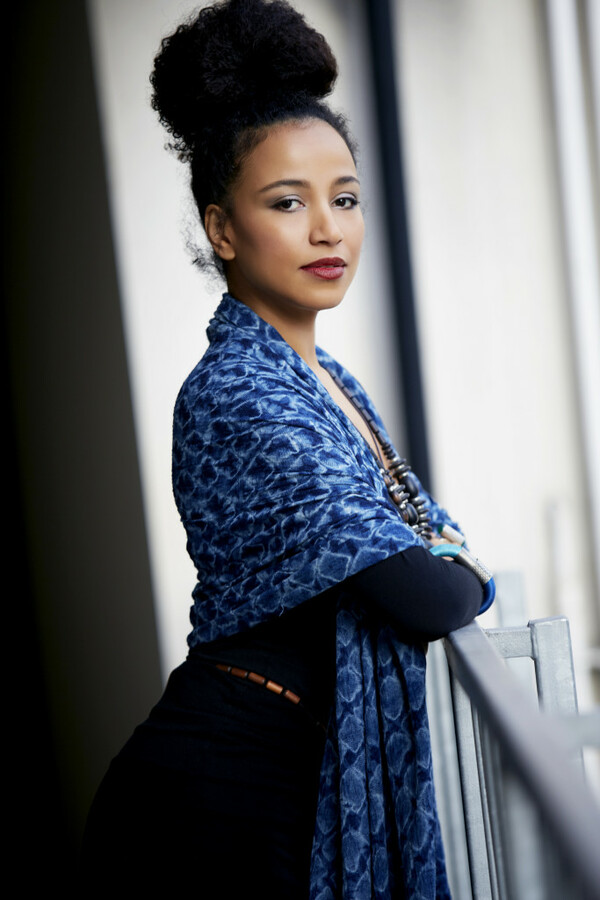
Minna‘s writings and talks focus on the themes of the African diaspora, pop culture, ideology, religion, sexuality – and of course, feminism. I’m keen to hear Minna’s opinion on present-day feminism. Though feminism appears to have become a ‘mainstream’ movement, with everyone from Tampax to the UN telling us ‘girl power’ is back (and when I say “back” I mean from like, 4000 BC); a lot of people – women - still aren’t (and should not be) satisfied. One of the prevalent themes in feminism today is that of intersectionality: the importance of the inclusion and representation of all classes, races and sexualities within the ‘mainstream’ feminist movement; and how many still feel they are neglected within it.
Personally (and maybe naively) feminism has only ever been about human beings being treated equally, fairly, and with respect; whoever they are. So, I’m curious to hear an authority’s view on intersectionality, Minna tells me: “What is at the core of intersectionality is repression …. and the heart of feminism is more specific than equality, it’s to uproot patriarchy. When we look at patriarchy, we have to be strategic in how we break down and uproot it; and part of doing that is understanding all the tenements that make it up. That includes interesctionality: people with different sexual preferences, their races and so on …”
There is a worry that we, as a society, are currently so keen to identify ourselves and be identified by our differences, and our different experiences, that we are all dividing at a rate faster than an unhealthy cell. Something that Minna echoed as she continued, “At the same time, I think there’s a slightly dangerous tone to the conversation now; because I do think intersectionality has always been a part of feminism, it’s just we didn’t necessarily call it that. There were always huge sections of feminist ideology that were looking at race and class and sexuality; so I think it’s a little dangerous too. The short answer: it’s an integral part of feminism, it has to be; but it also always has been. “
"What is at the core of intersectionality is repression …. and the heart of feminism is more specific than equality, it’s to uproot patriarchy..."
One of the buzz words for modern feminism, is that of ‘empowerment’ – I fear it is becoming little more than a marketing tool; and ask how Minna feels about this?
“I think it [the term empowerment] certainly had a radical wink to it; it was first used by Black Panther activists, and then feminists - which again shows how race and gender struggles have long history. Feminists started using it, then it was coopted by institutions: corporates, NGOs, the UN, the WHO – which means that, talking about empowerment today, is about as radical as talking about your breakfast. Anything a woman does is empowering now: a woman waking up and brushing her teeth is empowering. It’s not a radical term anymore. That’s why I don’t like it. If there was a way for the word to actually mean something and promote change, then it would become relevant again.“
Minna then points out something I had missed entirely: “For me [empowerment’s] more to differentiate men from women – we never hear about a mean being empowered – to be empowered as a woman is still to do those very gender normative, feminine things: like to walk in high heels to a power conference; it’s still something that’s very gendered.”
“For me [empowerment’s] more to differentiate men from women – we never hear about a man being empowered – to be empowered as a woman is still to do those very gender normative, feminine things: like to walk in high heels to a power conference; it’s still something that’s very gendered.”
So where does feminism go from here? This rather loud, yet slightly stagnated, point? Part of what feminism, and the entirety of society, needs in order to progress, is a more open-minded approach. We have to able to be honest with ourselves, think for ourselves, feel for ourselves, and see life as a whole, instead of, as Minna says, “just one side of the building”.
Part of this evolution of the movement, needs to be having the courage to admit uncomfortable truths to ourselves; even if they go against popular thought. This is something Minna explored with her blog post about a molesting she experienced in a massage parlor, the variety of feelings she encountered, and the idea of ‘blurred lines’ made famous by the narcissist known to many as Robin Thick – who successfully outraged millions of women with his pop song about the dubious subtleties of rape.
However, too much outrage silences debate, and so truth. But fortunately, not Minna. I asked what prompted her to write about her experience within the grey area: “It’s something that I questioned; and it turned out - at least for me - that there is some kind of blurred lines; within my desire there is some space for blurred lines.“ I ask why she thinks its important women are able to admit these things to ourselves: “Otherwise we don’t really think for ourselves - part of sexism and patriarchal thinking is that as women, we don’t define our own sexuality, which means there’s also a danger of defining it as just being one way. However emancipated it might be, it’s still someone defining your sexuality for you. “
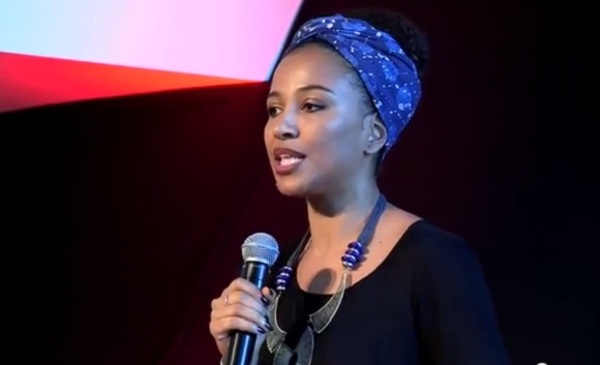
In Minna’s TED Talk, she speaks of illusions: “The more illusions you have about other people, the less likely you’ll find the meaning of yours”, so as part of being able to see the whole picture, I ask her what these illusions are?
“We have so many. I really do think we need for everyone to care about enlightenment, justice, mutuality and progress. I think we have to realise that we essentially have to unlearn everything we know, because society has so many problems: delusions about our purpose, our education, illusions about how religious life should be, illusions about what our relationship with the environment is - which is so damaged and abusive. So it’s being aware that we have illusions about all of our relationships; and then understanding how much more fun is it if I don’t have illusions about who you are. When I’m going to have a relationship with somebody how much more fun is if it I don’t have delusions about who you are, so we can just really be in contact; see you, know who are, and who am I.”
“This also makes for a much more relaxing situation for whoever is involved …”
“Yeah, and that’s really how we change the world: the reason people we have inequality is because people are unhappy at the core of it. So people who are, not happy, but who have meaning in their lives, are much more prone to not be damaging or destructive … You don’t need to claim power to understand that you have power. You don’t have to take power from other people to have it.”
"You don’t need to claim power to understand that you have power. You don’t have to take power from other people to have it.”
I like to think myself pretty up-to-speed on things; but at the beginning of the interview, in light of Minna’s expertise, I had worried, A) I would be out of my depth and B) I would be made to feel out of my depth. I learned a lot from Minna during this interview and there was not one moment I was made to feel inferior for anything I didn’t know. I make this point because I think it’s important; especially in this age of social media where everyone has an opinion. If women are to change the world – and when we say this, ‘change’ doesn’t mean a reversal of the current order - the crux of this change has to be that women are kind, compassionate and supportive towards other women; or we are never going to get anywhere.
Regardless of whether a woman is poorer, richer, blacker, whiter; regardless of sexuality, religion, intelligence, beliefs, wealth – or whatever other divisions have been imagined between us; women need to be educated compassionately by other women; women who have taken it upon themselves, as Minna has, to educate themselves – as opposed to perpetuating the restrictive pedagogy already very firmly in place.
There is not one woman on this planet who has not experienced some form of repression or abuse by a man (for the majority, this is experienced on a daily basis in varying degrees of severity). So we, as women, all have the right to an opinion, and we should respect each other’s right, and not shout each other down - that is no way to evolve; surely we have learned that from observing how men behave for the last few thousand years.
Education is not about making someone feel stupid for not knowing something you do; it is humbly enlightening someone to a truth or a belief you are lucky enough to already aware of. And being educated is about having the ability to engage in a debate with someone from a different background, with different views to you; carefully considering those views, and if you still disagree with them, air your beliefs without attacking the human being airing theirs.
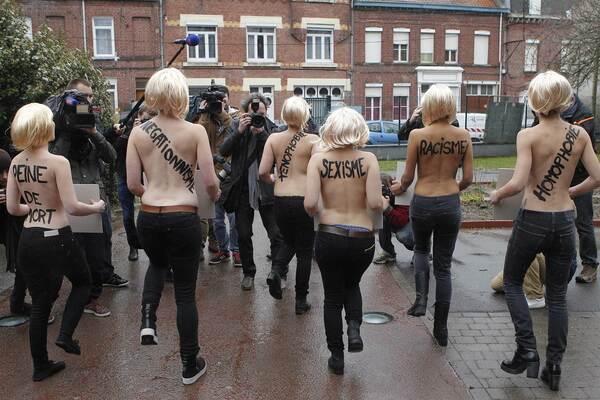
The ‘mainstream’ feminist movement needs to be smarter, it needs us to start using our brains, instead of our bodies: FEMEN protesters (pictured left) running around shouting, with “fuck Sharia law” painted over their breasts (please note FEMEN was founded by a man), will do nothing for our cause and is an embarrassment to it. As Minna says, “A lot of feminist movements, like all other political movements today, have got to the point where we think just shouting about stuff is enough. I think we need to think about the kind of qualities like diligence and strategy, and looking back at history and really looking at it in detail, to understand how patriarchy has been built so that we can ruin it.”
We need more women like Minna. Who understand the term empowerment - and don’t use it frivolously because they understand the weight it carries; that it represents something far more important than Western girls being able to show their nipples on Instagram – sure, we should be able to do whatever we want with our bodies; but we need to priorities ladies, first things first. Women still face massive restrictions to their right to an abortion in many states even in America, “Land of the Free”. We need power, determination, intelligence and education – we need change and very rarely does true change come from hashtags. It needs to come from the very core of all of us.
If you, like me, feel you could do with a refresher course on our history; the current issues affecting all women; and in fact, everything from mysticism to African women in film; I suggest reading Minna’s blog, watching her Ted Talk, and having a good old think.
And remember: we, in all our different guises, are half of this earth’s population. We can change things. Educate yo’self, the time really is now.
